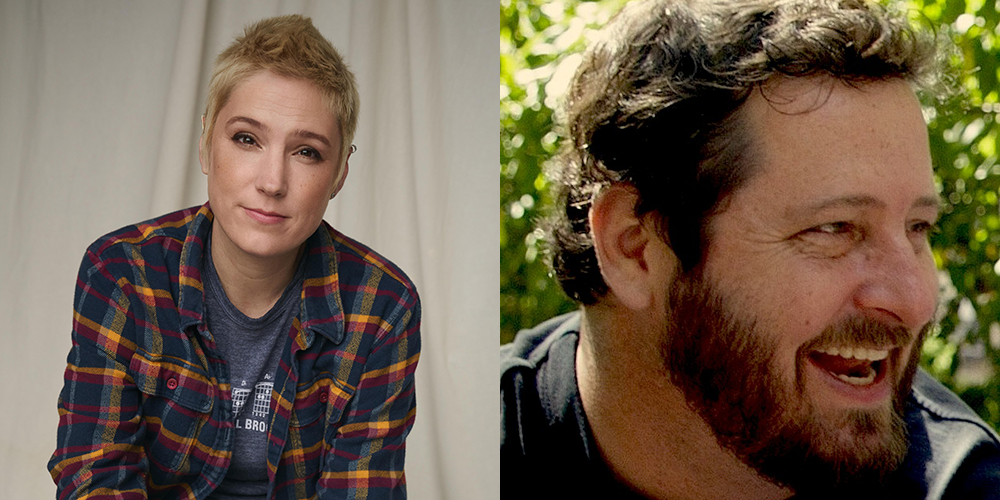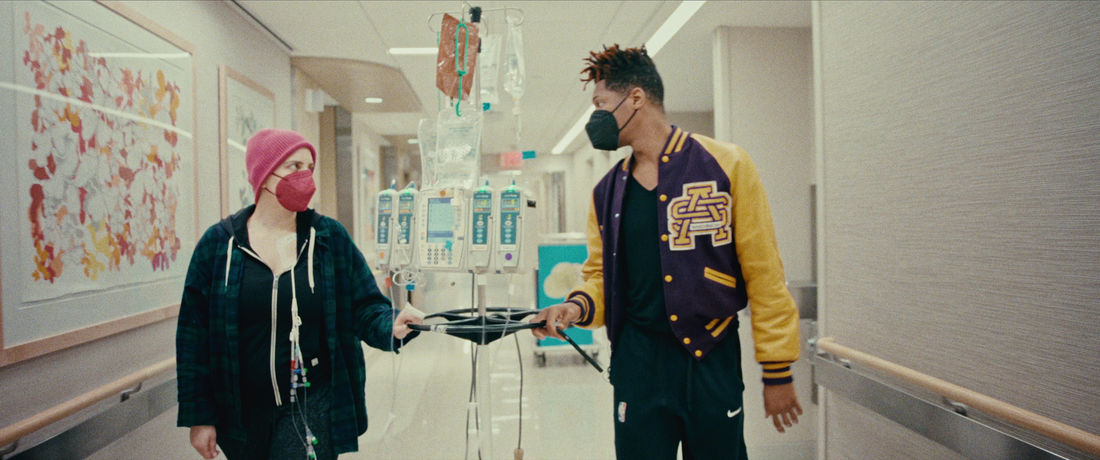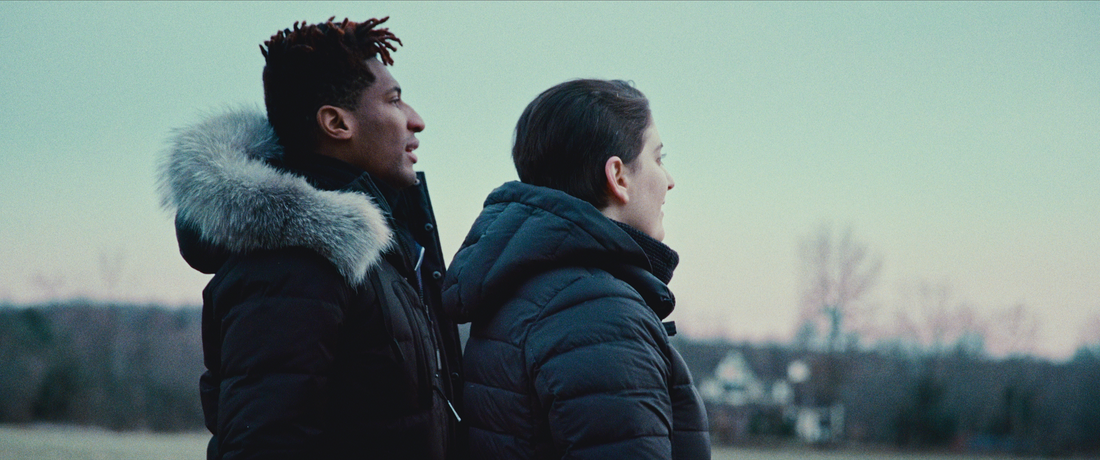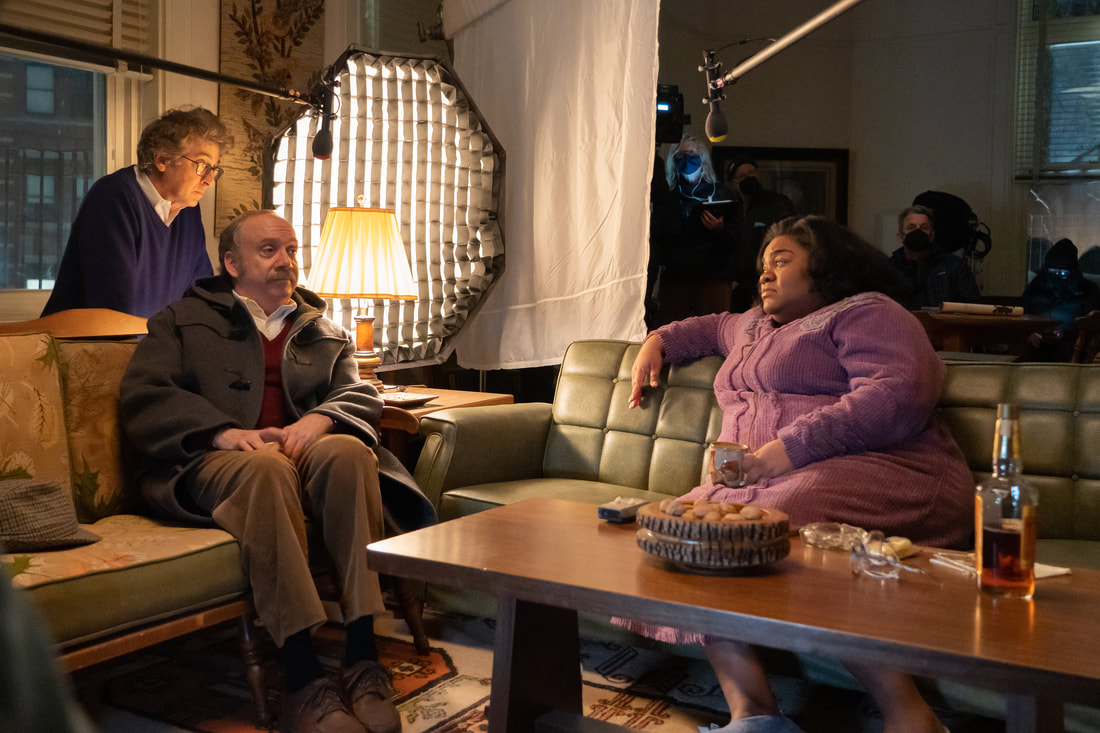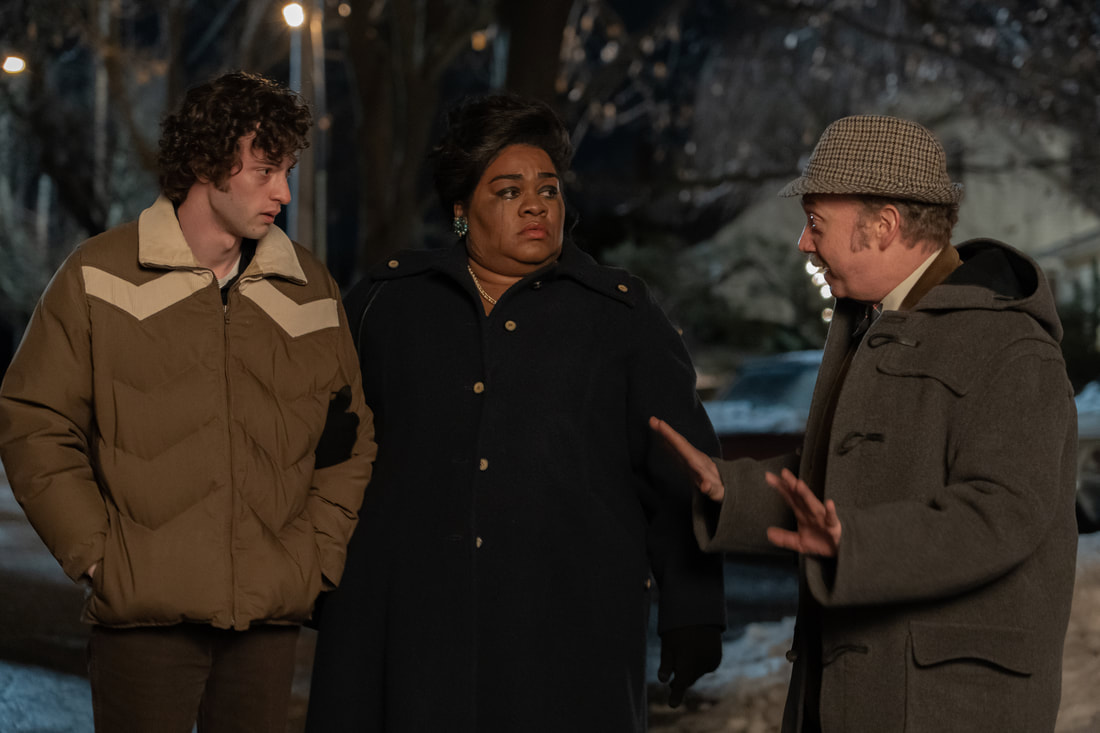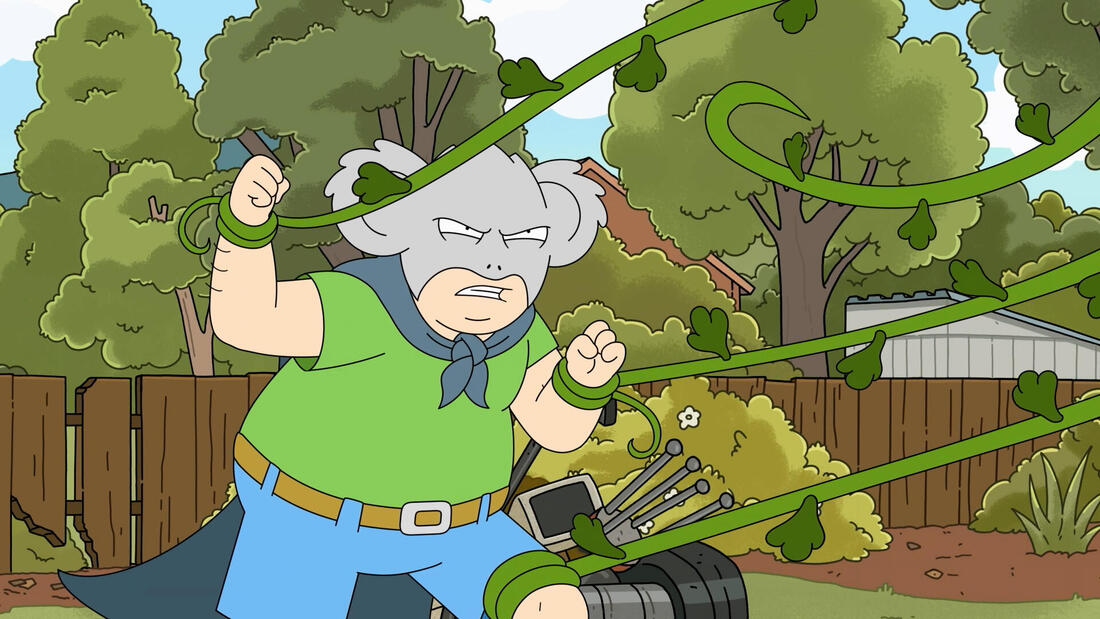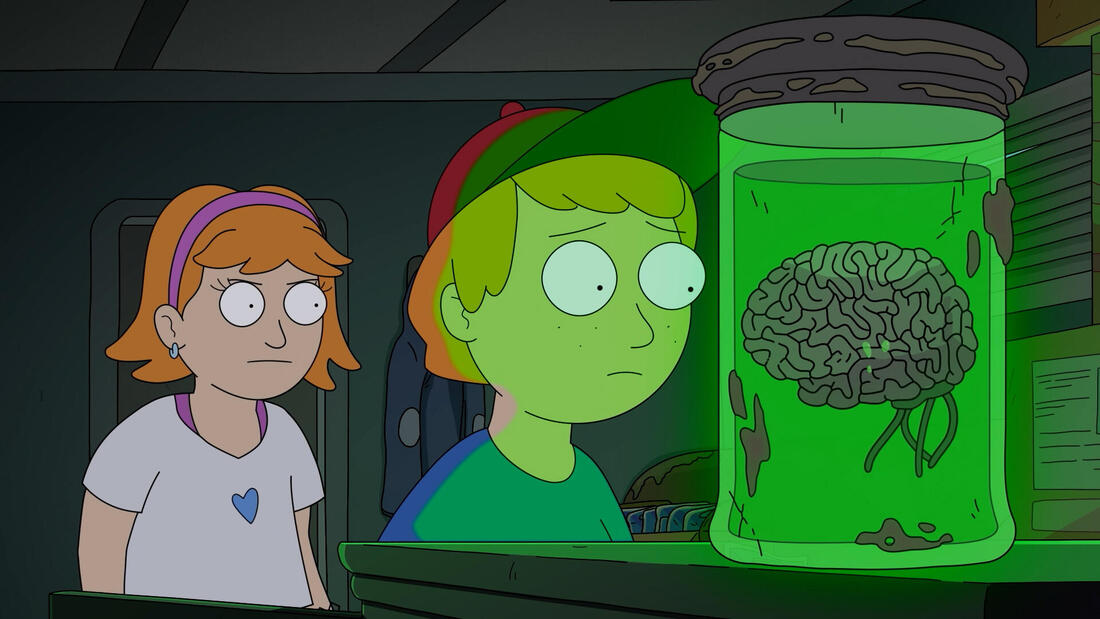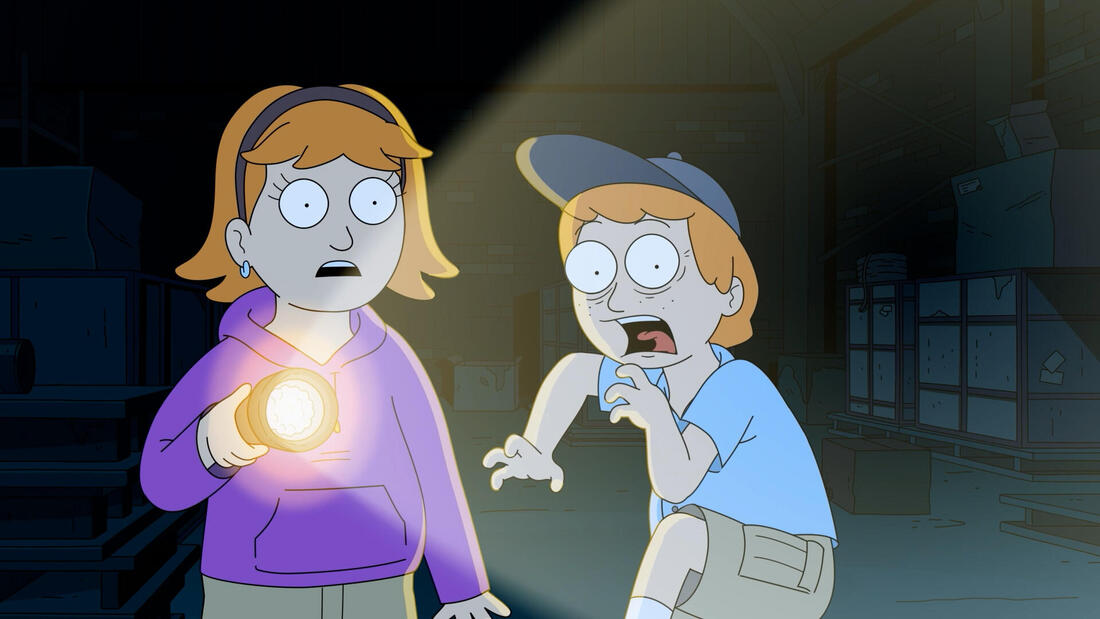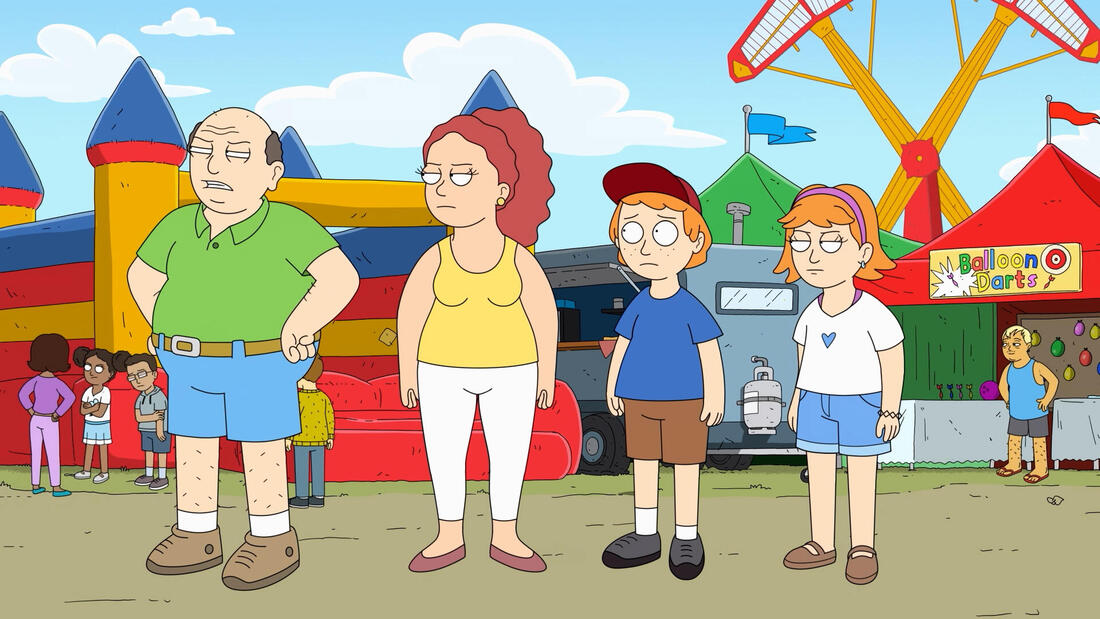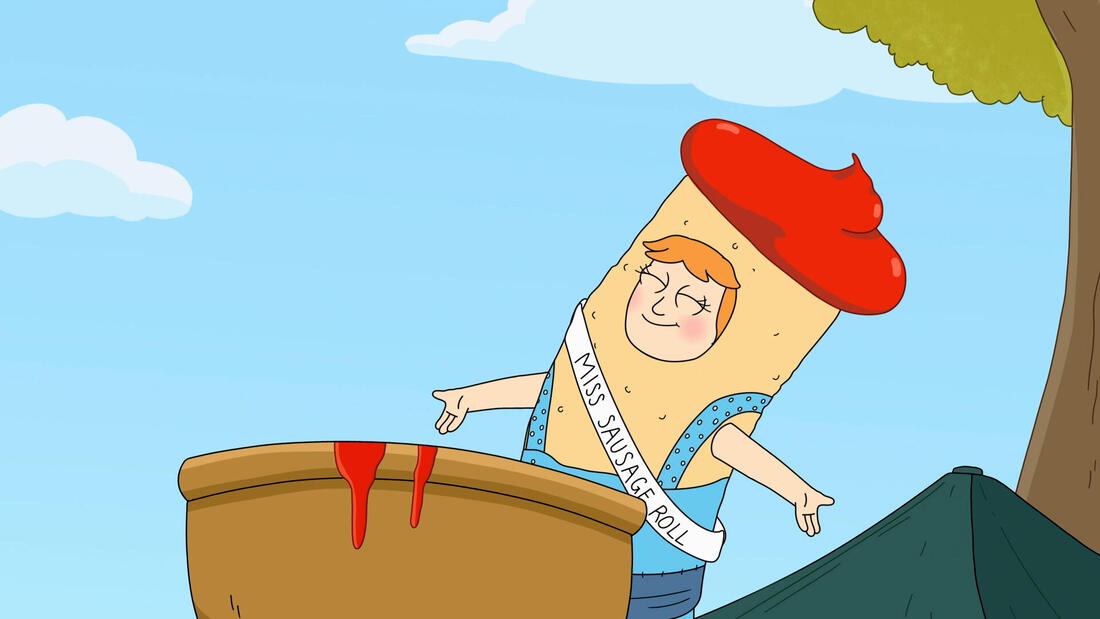|
By Sean Boelman
Tracie Laymon’s feature debut Bob Trevino Likes It was one of the buzziest premieres in this year’s SXSW Narrative Feature Competition, largely thanks to a star-studded cast including Barbie Ferreira (Euphoria), John Leguizamo (Romeo + Juliet), and French Stewart (3rd Rock From the Sun). A semi-autobiographical retelling of the filmmaker’s experiences, the film follows a young woman who, growing disillusioned with her manipulative father, bonds with a man on Facebook who shares his same name. It’s a family dramedy that’s equal parts touching and hilarious but consistently crowd-pleasing in the best possible way.
One of the things that makes Bob Trevino Likes It stand out is that it’s an uplifting story about social media. All too often, movies about social media tend to focus on the negative, emphasizing its dangers. However, in Bob Trevino Likes It, the protagonist (Ferreira) finds a wholesome, heartfelt connection with a stranger on social media (Leguizamo). When asked about the film’s unique perspective on the timely theme of social media, producer Sean Mullin said: “I think this is probably the first great movie about how social media can actually do good. There's not a lot of them, and I hope there are more, but this is actually a positive social media movie, which is really exciting to get out into the world.” However, the aspect of Bob Trevino Likes It that is likely to resonate most with audiences is its exploration of the theme of chosen family. Throughout the movie, Ferreira’s character finds an unexpected father-like figure in Leguizamo’s character. The result will be intensely relatable to many viewers, especially those who have felt cast out or otherized by their family members. Mullin explains: “We can't pick who we’re born to — our biological families; sometimes they're really, really wonderful and lovely, but sometimes, we need to stand up and set boundaries, and we need to hold our own. I think in this time, this day and age, where a lot is up for discussion, what is family? I think this idea of creating your own, regardless of blood, is really important. That's why I think this is really an essential film.” Writer-director Tracie Laymon adds: “A lot of the time, we're born into situations, and we think this is all we get. You just keep trying to bark up the wrong tree or get love from people who may not love you or accept you, and I think that’s a kind of universal thing. So, I think the importance of chosen family is that sometimes you have to let go of the people who continually hurt you to make room for the people who want to love you and are right there. If you stop spending all your time and energy with people who maybe can't do it, there are so many people; there are so many connections to be had.” Bob Trevino Likes It screened at the 2024 SXSW Film Festival, which ran March 8-16 in Austin, TX.
0 Comments
By Sean Boelman
American Symphony is a new documentary following musician Jon Batiste and his wife, writer Suleika Jaouad. Although the film might have started with the intention of following Batiste as he composed his latest work, its focus shifts when Jaouad learns her cancer has come out of remission. The result is a wonderfully emotional documentary in many unexpected ways.
In a recent press conference, Batiste, Jaouad, and director Matthew Heineman (Cartel Land, The First Wave) discuss their artistic process and some of the key takeaways they hope audiences have from the film. Part of what makes American Symphony stand out from the mass of other music documentaries is that Heineman gets such an incredibly personal glimpse into the lives of his subjects. While Batiste and Jaouad are both acclaimed artists, and the film is about Batiste composing one of his most ambitious and audacious works yet, their creative processes are intertwined with their lives. Batiste had this to say about how his work reflects the experiences he has had in his life: “We were talking a lot about synthesis and the creative process when I’m with the musicians, and I’m talking about how to synthesize all these things and to create a new sound, a new approach, really my own approach. I think about life in that way. And in this time, you can’t be in the present without having some form of integrative synthesizing thought. You’re bringing it all together. You’re using this in that and that in this. That’s inspiring this piece, and this piece is inspiring how you show up for your wife. And this is inspiring the Grammy’s performance. And that all becomes one. To me, that was what happened in this moment, and that’s typically what I’m doing anyway, but it was on hyper-drive in this seven-month period. How do I take everything that’s happening and integrate it all into one? Because that’s the only way I’m gonna be able to be present in all of it effectively and move forward and keep the momentum going.”
Indeed, one of the most moving things Batiste says in the film is “music comes from life experiences.” When asked if he thought this wisdom rings true in other mediums of art, including film, this is what Heineman had to say:
“I hope, if there's nothing else that comes out of this movie, it’s that life imitates art imitates life. It's inseparable, especially with Jon and Suleika. They feed each other, both as a couple in their lives and their music. I think one of the moments in the film that really personifies that is when John dedicates the songs to Suleika, and he pauses for 90-100 seconds or so. And in that moment, he writes a novella for us about what he's feeling. The way he puts his left hand and then the right hand, and obviously, there's so much weight that he's carrying with him. He’s obviously worried about Suleika and trying to sort of transfer that from wherever he’s channeling his energy into his hands and into that moment. So I think that really highlights the duality that exists between their experiences and their music.” American Symphony is now streaming on Netflix.
By Sean Boelman
The Holdovers is the latest film from filmmaker Alexander Payne (Sideways, The Descendants), and stars Paul Giamatti as a boarding school teacher who gets stuck over the winter holidays with one of his dejected students (Dominic Sessa) and the school’s cook (Da’Vine Joy Randolph)
One of the biggest highlights of the film was the chemistry between the three leads. In a press conference with the trio and director Alexander Payne, they were asked how they worked to build this chemistry on set. This is what Giamatti had to say: “We had time. You always make time. I mean, when I’ve worked with [Payne] before, [he] make[s] time. So, we had a couple weeks to sorta get to know each other. I remember that specifically on Sideways, we had more time probably. But any time is more than you usually get.” Randolph adds, “For this project, let’s say we had three weeks in which we were doing table reads and text analysis and working stuff out. Because people have been asking this question about what was improvised and what wasn’t. I think that was very unique, to me at least, that Alexander did, was that there was room for that, but we did it at the early phase of the table read session. So then it was kinda like this is our collective, agreed upon script, and that we stuck to. But the fact that we had that time to do that, I haven’t had that in a very, very long time.” “It was this little group of the three of us. It felt like a little chamber play thing sometimes,” Giamatti concludes.
However, even more impressive is that Sessa, who has never had a screen credit prior to The Holdovers — even in short films — is able to hold his own against the two more experienced performers.
This is what he had to say about the prospect of working on Payne’s latest film with his acclaimed co-stars: “I mean, yeah. I just didn’t know what these people were gonna be like to me beforehand. These are celebrities to me, you know? So, I don’t know if they go back to their trailers and plug themselves back in or whatever.” He adds, “I genuinely could not have asked for better people to do this with for the first time around. Everyone was so down to earth, grounded, and confident in what they were bringing, but also confident in what I was able to bring, too. Like, you guys really, genuinely trusted me in my creative process, my artistry, and that’s all I really could’ve asked for the first time.” If his performance in The Holdovers is any indication, we can look forward to seeing even more great things in the future from Sessa. The Holdovers hits VOD on November 28.
Interview by Sean Boelman
Working closely with series creator Michael Cusack, Koala Man showrunners Dan Hernandez and Benji Samit helped to craft an immersive alternate version of the Australian suburb Dapto. We at disappointment media got the opportunity to talk with Hernandez and Samit about the writing of the show, balancing its tone, and staying true to the real-life Dapto. Check out the full interview below!
On Creating a Show That Is Silly Yet Grounded
disappointment media: So Koala Man is full of episodes that have these silly, absurd premises, but you also kind of approach them with a straight face. How did you find this balance between the goofiness and absurdity with something a bit more grounded?
Benji Samit: Yeah, that was an important guiding principle for us in crafting this show and these episodes — that we never want it to go crazy just for the sake of being crazy. Yes, we go to zany, insane places on the show. But every time it's based out of a real grounded, character thing or story thing. There’s emotion at its core. We find that, as long as you can hold on to that through-line of emotion and story, then you can go as big as you want and you can still feel connected to what you’re watching. Dan Hernandez: And I think that also combines with, when we were developing the show, there was a question of, “Well, how crazy should it go?” There's a version of this show that could be King of the Hill that is really, very grounded and it's not supernatural. But as we developed Kevin as a character, we realized what was funny about him was the fact that he doesn't have powers or that he's not in shape, but he does have this ethos that demands that he interferes with things. It became funnier and funnier to us to put him up against real threats that he should have no business going up against, like an alien, like cannibals, like Manimals. Every time it was like, we're sending this out of shape guy with no powers against something that should kill him in a second. And that was funny to us. And so the comedic element was the more you believe Kevin as a character, in his mind, like cutting the grass one centimeter and fighting an emu that has a machine gun are basically equivalent, just a problem to be dealt with, in his mind. And that makes him endearing and sort of difficult but also hilarious in his misbehavior and shit like that. disappointment: I think one of those emotional through-lines that you talked about that was really powerful to me was the theme of family. How did this theme really resonate with you guys in the show? Hernandez: Benji and I both have young kids. I think that becoming a father over the process of working on this show was actually extremely useful to the writing of the show. Because you start to think about things in a slightly different way. You're not really just focused on yourself. All of a sudden, you start to think about, “What is the legacy that I'm leaving for my kids? What are the things that I dislike about myself that I don't want to pass on to my kids? How are my bad behaviors going to affect them in the future? How did my own parents' behaviors affect me?” And when you really started to delve into that, that was a very fertile territory for emotional stories. At the same time, we wanted the show to be optimistic. We made a decision early on that this was not a cynical show, that this was kind of positive in a way, life-affirming. Samit: We wanted the family to really love each other, you know. Kevin — Koala Man — he loves his town, and he loves his family. That’s his guiding principle. But then within the whole family, Kevin and Vicky love each other, even though they have their issues with each other, and the kids have their issues, everyone in the family has their issues, like we all do. But at the end of the day, they are 100% there for each other. Hernandez: Even Alison, on her quest, she’s almost embarrassed that she loves her dad in that episode, and that that felt real to me on some level about being a teenager and being trapped in that idea of popularity. But you’ve got this person who’s on your side no matter what: your dad. And that was very moving to me. So that’s how we approached the family element. And we realized, if we grounded the family element in real human emotion, real stakes, that let us be as crazy as we want it to be on all the other stuff, because the stakes for them were very real. disappointment: One of my favorite things about Koala Man is that everybody could walk away from the show with a different favorite character because the subplots are so developed and lived in. Do each of you have a character that you would call your favorite? Samit: It’s a tough one, because they're all our babies, you know. But in terms of just fun to write, Spider, he can just get the punchline. So that’s always a fun type of character to write. I think Vicky is the emotional heart of the show. So she’s obviously a favorite of ours. Hernandez: It's so hard to pick. I really enjoyed writing the kids, honestly, because I think it was fun to go back into that teenage place and try to project down through the years of what it felt like to be an awkward teen or to be wanting people to notice you. And so I think Demi Lardner is the secret weapon of the show. I think she gives an absolutely remarkable performance. Her voice is incredible. She's so funny. And she's someone that the world, that we in America we're not as familiar with. And I think that after this, I hope that people will be because she's awesome. So Allison was a real favorite of mine to write just because to be able to be a mean girl for a minute — that was a fun thing to do. On the World-Building of Koala Man
disappointment: Something else that really stood out to me about this show is that there are a lot of jokes and elements in the series that are very specific to Australian culture and neither of you is Australian. So I'm assuming that writing the show just as much as it will be for the viewers is this learning, immersive experience in the culture. What do you think is one of your favorite things that you got to discover about Australian culture through the show?
Samit: I mean, there's so many little quirks. It was really fun seeing the similarities to America, but also the differences. Finding out about the emu war, finding out about showbags, the tradies. Skilled laborers being at the top of the social food chain was such a foreign concept to all of the American writers, but to the Australian’s they’re just like, “Oh yeah, no. An electrician is just the coolest guy in Australia.” Hernandez: I thought what was very interesting was sort of the directness of Australian culture. Like tall poppy syndrome is the idea that anyone that gets too big for their britches, we don't like that, you kind of do your job, you kind of plug ahead, and you keep your head down, and you live a good and fulfilling life. And that’s what you do. And it was interesting to juxtapose that with a character like Liam, who actually does have a little bit more of an artistic impulse, who is interested in things like nerdy or geeky things, and his feeling of, “Do I even belong here? Should I be in Australia?” Which, ultimately, one of the reasons he runs away to Hollywood Island and in the finale is that he's in search of something more. And there are some people that really thrive within that culture, then there are some people that feel not understood. That really does come down to sort of cultural values and what is privileged there and how it's quite different from what's privileged here, even though it seems like it should be very similar. The nuance of it is totally, totally different. disappointment: So I want to compliment you guys on the world building of Koala Man. I really love that aspect of the show. You balance the mundane suburbia with these fantastic events. How do you kind of go about juxtaposing this world in that way? Hernandez: I think because Dapto is a real place and it really is Michael's hometown, that there's a feeling of reality underlying all of the show that yes, we're blowing it out into the most surrealistic, crazy, over-the-top version of it. But really, it's a real thing and a real place. And these are people and places identifiable to Michael in his own life and the streets that he grew up with. We've been fortunate enough now to talk to other people who grew up in Illawarra and Dapto. And they’re like, “Yeah, that’s what it’s like.” Even though there isn't literally a plant monster rampage in the city, the other stuff is just real. That's just what it is. And so we felt like that reality wedded to some of the classic world building that shows like Simpsons, South Park, Family Guy, where you have the town as a character, and you know the denizens of the town, and how they’re going to react. You know that Randy is gonna overreact on South Park, you know that Reverend Lovejoy is gonna be sanctimonious on The Simpsons. And once you start to get to know the geography and the interpersonal geography of the people and places of the town, it's fun to start to anticipate how they're going to react. What are they going to do? What is Spider going to feel about this? What is Louise going to feel about this? And that was really important to us because it made it feel very lived in. It made it feel like this is a place that functions, whether we as a viewer are watching it or not, and we really tried to cultivate that throughout the entire process of running the show.
Koala Man is now streaming on Hulu.
Interview by Sean Boelman
Hulu’s new adult animated show, Koala Man, created by Smiling Friends creator Michael Cusack has an A-list cast led by Australian and New Zealand legends like Hugh Jackman, Sarah Snook, Miranda Otto, Jemaine Clement, and Rachel House. But fans of the show will be equally — if not more impressed — by its breakout star: Australian comedian Demi Lardner.
We at disappointment media sat down with Lardner to talk about her character in the show, why she hopes Americans will be subjected to bags of random junk, and the theoretical assassination of one of her more famous co-stars. Be sure to check out the interview below! On Why She Loves Her Character
disappointment media: I think that the character of Alison really has one of the most interesting arcs of any character in the show. What spoke to you about this character's role and growth in the show?
Demi Lardner: I love Alison. And the thing that I love most about her is that she's a weird little psycho. And her growth is uncomfortable, which speaks to me because like, when I watch people kiss in movies and emotions and stuff I’m like [she shivers]. But obviously, it’s a good thing. And I think the amount of discomfort she has with her own goodness is very cool to me. And also, I don’t have to act much when I’m uncomfortable with it, because I just am. disappointment: I think something that's really special about Koala Man is that the subplots are just as interesting as the main storyline. Other than your own character, of course, do you have a particular character that you found was particularly compelling or your favorite? Lardner: So I'm extremely drawn to Liam, just always such a wonderful, little dork. But in a way, his growth is also more supernatural and strange. But they sort-of parallel each other. When she’s like “Man, I hate having feelings!” he’s like “Oh bloody hell! I’m all magical!” I find that really interesting as a person who, when I was a kid, would grab my dog and say, “Hey, if you can talk, I will NOT tell anybody.” It's kind of like that if it came true, and it’s relatable in a way. disappointment: And you kind of mentioned the sibling dynamic that your character has with Liam in the show. It's really unique and not stereotypical. Did you find that to be particularly interesting to work with? Lardner: So I have five sisters, and no brothers. It's like the version of when I got old enough to be friends with my sisters. And again, being uncomfortable with it and being like, “Oh man, I like you. Ugh. This is stupid.” I enjoyed playing around with that. Most of the things that made me uncomfortable were the things I enjoyed the most. On the Universality of the Show
disappointment: The cast is full of Australian and New Zealand legends in the acting community. What was it like to be part of this extraordinary ensemble?
Lardner: It's so weird. Like one of my ex’s mom's got in touch with me to be like, “It’s like Sarah Snook, Hugh Jackman, and YOU are listed in this article. And that’s it.” And I was like, “This is crazy. You show your son. Show him now!” It's really wild. And I've been told to stop threatening the really famous people. So this is a joke, but I am going to kill Hugh Jackman. disappointment: So the humor in the show obviously has some very Australia-centric moments, but it's also widely relatable. How did you kind of approach the humor in this series? Lardner: I mean, I'm a comedian. To get wanky about it, it’s another language that crosses the ocean. [She makes an exaggerated vomiting noise.] It’s a good thing to relate to people with, though. So the humor, it is super Australian, but it’s also just super funny and there’s no denying that. I think it’s a really natural fit, and also you get to squeeze in the C-bomb and as much swearing as humanly possible. We are Australian, after all. disappointment: But even though it is very foul-mouthed, it’s also very wholesome in a way. Lardner: Yeah. And that encapsulates a lot of Australian families, honestly. At least mine. disappointment: On that note, family is a really important part of this show. How did that theme resonate with you? Lardner: It’s really nice. I think it’s important for shows to have that. It makes me think of Malcolm in the Middle vibes, you know, when you’d watch that and be like, “God, these guys are insane! And they hate each other!” And then you realize, actually, they love each other more than anything on planet Earth, and that is really cool. Zeroing in on that kind of makes it funnier because you know that they love each other, but you have the full range to be disgusting because you’re safe in the fact that they’re safe with each other and their feelings. disappointment: Your character arc in specific, it starts out kind-of normal high school drama and then escalates, and by the final episode it just goes off the rails. What was it like evolving with your character? Lardner: Extremely uncomfortable. I really enjoyed it because it made me uncomfortable. I think it was cool to have her be mad that she was feeling things. It made it easier to grow her character because she was uncomfortable. It was cool to let this little mean freak cry. Like she's so nasty and annoying and awful and then just having her completely split apart with the feelings was an interesting thing to do. On Why America Should Appropriate Australian Culture
disappointment: I think one of the more heavily Australian elements in the show was the episode about showbags which was something that was completely foreign to me as an American. Why do you think that they remain an Australian phenomenon and why did you just cheer excitedly when I mentioned them?
Lardner: They’re so exciting! They’re trash! There's nothing in them that you actually want! But it's a bag from the show. I think it was called the “super idiot bag” that everybody wanted because you would get like a fake ass in a pair of shorts. And you'd be like, “Oh, it’s like me bum’s out! Isn’t that so cool?” It’s nothing! You're never gonna use them. You're never gonna wear them and it’s just the worst chocolate you've ever seen in your life. But it was so cool. They look so good. Oh man, I need to go to the show. It’s so exciting and trash. And then such a burden. Because you're walking around trying to go on rollercoasters and the Ferris wheel and stuff and you're like, “What am I gonna do with my bag?” Everything’s gonna drop out. The amount of awful little mood rings and Bertie Beetle candy bars that suck and everybody hates that I've seen falling from people's pockets coming out of roller coasters. It's amazing. It's so good. And the reason they will never make it anywhere else is because they are literal trash. You can do nothing with any of it. disappointment: So apart from the show bags, is there something that you hope that international audiences and American audiences will pick up on from Australian culture from the show? Lardner: Yeah, two things. Sausage rolls. You don’t know what is in them. It’s impossible to tell. You don't have a beef sausage roll or a chicken sausage roll. No, there’s just stuff in there. And that’s great. And the word c**t. I think it’s my favorite one. And it does sound different coming from Australian mounts but I would love to be able to walk around New York and say it without people you know pointing their guns at me.
Koala Man is now streaming on Hulu.
|
Archives
March 2024
Authors
All
|
|
|
disappointment media
Dedicated to unique and diverse perspectives on cinema! |

